Authors from The Original Black Communities
Here are notable books by Black Nova Scotian Authors, including their titles, brief synopses, publication years, and available download or purchase links.
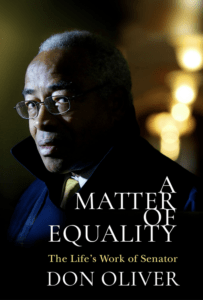
Don Oliver's A Matter of Equality
The Life’s Work of a Senator. Nimbus Publishing. October, 2021. Reviewed by Wanda Thomas Bernard
Senator Don Oliver has given us a fabulous gift by sharing his life story in his own words. As the first African Nova Scotian, and indeed the first African Canadian man to be appointed to the Senate of Canada, he is a notable Canadian. There is much to learn about the fight for equality and social justice through his lived experiences, growing up poor and Black in racially segregated and race-conscious Nova Scotia. Positioned for purpose throughout his life, Senator Oliver is an elder statesman, ambassador, community builder, mentor and strong advocate for human rights, whose life is a road map of triumph in the face of adversity.

Don Oliver's A Matter of Equality
The Life’s Work of a Senator. Nimbus Publishing. October, 2021. Reviewed by Wanda Thomas Bernard
- Phone:+1 (859) 254-6589
- Email:info@example.com
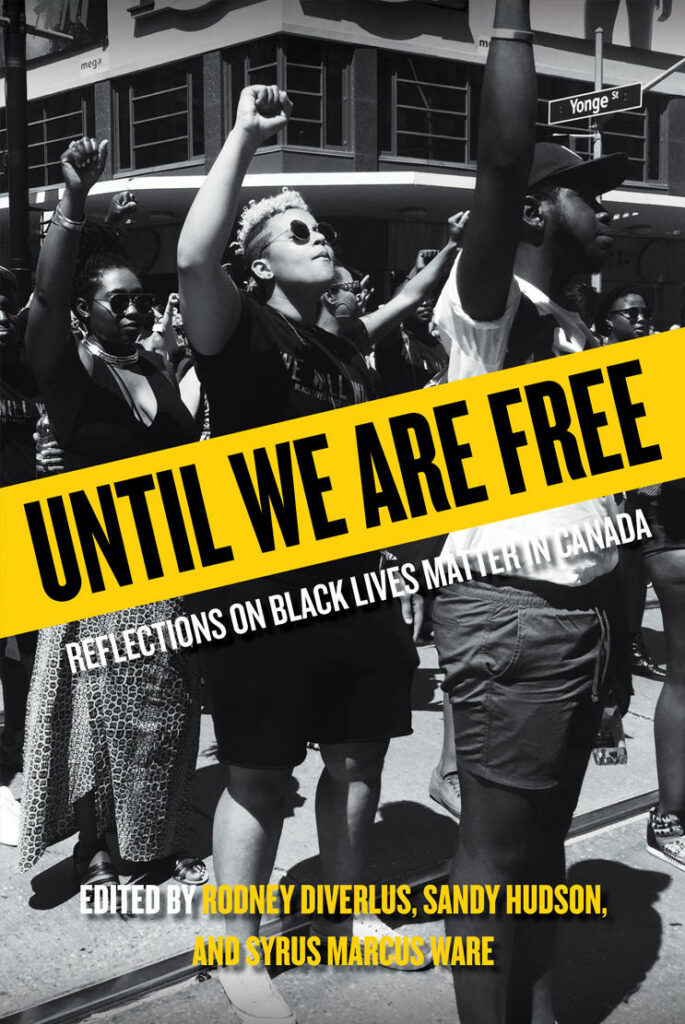
Rodney Diverlus, Sandy Hudson, Syrus Marcus Ware (Editors) (2020)
Author
This is a powerful anthology that brings together voices from the forefront of Black liberation movements in Canada. The collection highlights the ongoing struggle against anti-Black racism and oppression, offering both historical and contemporary perspectives on resistance and activism. Contributors to the anthology include activists, scholars, and artists who share personal narratives, essays, and poetry. Through these diverse forms, the book explores themes such as systemic violence, intersectionality, community organizing, and the resilience of Black people. It underscores the importance of collective action and emphasizes the role of creativity, culture, and grassroots movements in fostering change.

Rodney Diverlus, Sandy Hudson, Syrus Marcus Ware (Editors) (2020)
Author
- Phone:+1 (859) 254-6589
- Email:info@example.com
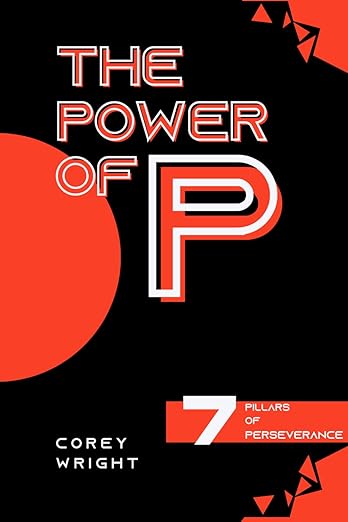
Corey Wright
Author
Ever wonder how famous people become famous? Have you looked at someone's past and wondered, how did they even get through that thing they got through? Ask yourself a question, do you think you could get through it? If you want to be able and ready to deal with those tough times or reach a level of success you can only hope for, then this book is for you. This book will help you gain insight into perseverance. Through this book, you will learn the 7 pillars of Perseverance. Think of perseverance as a Utility knife made up of 7 different traits/skills to help you navigate through the jungle while achieving a stronger mindset!

Corey Wright
Author
- Phone:+1 (859) 254-6589
- Email:info@example.com
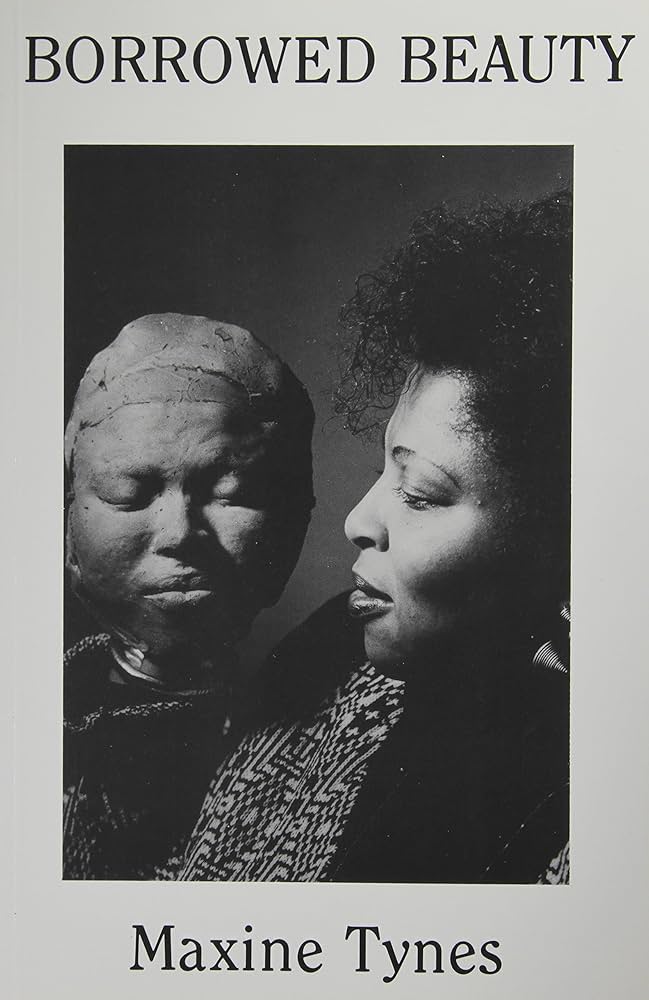
Maxine Tynes(1987)
Author
Maxine Tynes' poem "Borrowed Beauty" explores themes of identity, self-worth, and societal standards of beauty. Written in 1987, it reflects the struggle of individuals, particularly Black women, to navigate a world that imposes Eurocentric beauty ideals. The poem vividly describes the experience of feeling alienated or inadequate due to physical appearances that deviate from the dominant standard, and it emphasizes the emotional impact of internalizing these external pressures.
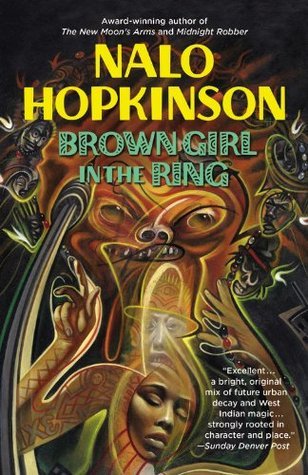
Nalo Hopkinson (1998)
Author
Set in a dystopian near-future Toronto, Brown Girl in the Ring explores themes of survival, identity, and cultural heritage. The city, abandoned by the wealthy, has devolved into a state of chaos, where gangs rule and resources are scarce. The protagonist, Ti-Jeanne, is a young Afro-Caribbean woman living in the city’s dangerous inner core. She struggles to reconcile her duties as a new mother, her connection to her grandmother Gros-Jeanne’s spiritual traditions, and her desire to break free from her troubled ex-boyfriend, Tony.

Nalo Hopkinson (1998)
Author
- Phone:+1 (859) 254-6589
- Email:info@example.com

Liselle Sambury (2023)
Author
The story follows Daisy Odlin, a teenager with the ability to see and communicate with ghosts, as she inherits a mysterious, isolated mansion from her estranged grandmother. Hoping for a fresh start after a traumatic incident, Daisy moves into the house with her mother, but the mansion’s eerie past and the ghosts haunting its halls begin to unravel long-buried family secrets. As Daisy struggles to understand her powers and her family’s history, she discovers that the house may have a sinister will of its own.

Liselle Sambury (2023)
Author
- Phone:+1 (859) 254-6589
- Email:info@example.com
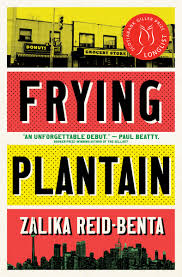
Zalika Reid-Benta (2019)
Author
Frying Plantain is a powerful coming-of-age collection of interconnected short stories that follows the life of Kara Davis, a Jamaican-Canadian girl growing up in the predominantly Caribbean neighborhood of Eglinton West in Toronto. Through 12 vivid and nuanced stories, Zalika Reid-Benta explores Kara's experiences as she navigates the expectations of her Jamaican heritage, her identity as a Canadian, and the complexities of family, friendship, and self-discovery.

Zalika Reid-Benta (2019)
Author
- Phone:+1 (859) 254-6589
- Email:info@example.com
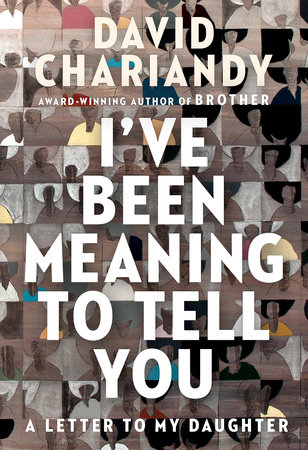
David Chariandy (2018)
Author
In I’ve Been Meaning to Tell You, David Chariandy pens a deeply personal and poignant letter to his teenage daughter. The book reflects on themes of identity, race, and history, exploring the complexities of being a person of color in Canada. Drawing from his own experiences as the son of Trinidadian immigrants, Chariandy recounts moments of prejudice, resilience, and love that shaped his life and worldview.

David Chariandy (2018)
Author
- Phone:+1 (859) 254-6589
- Email:info@example.com
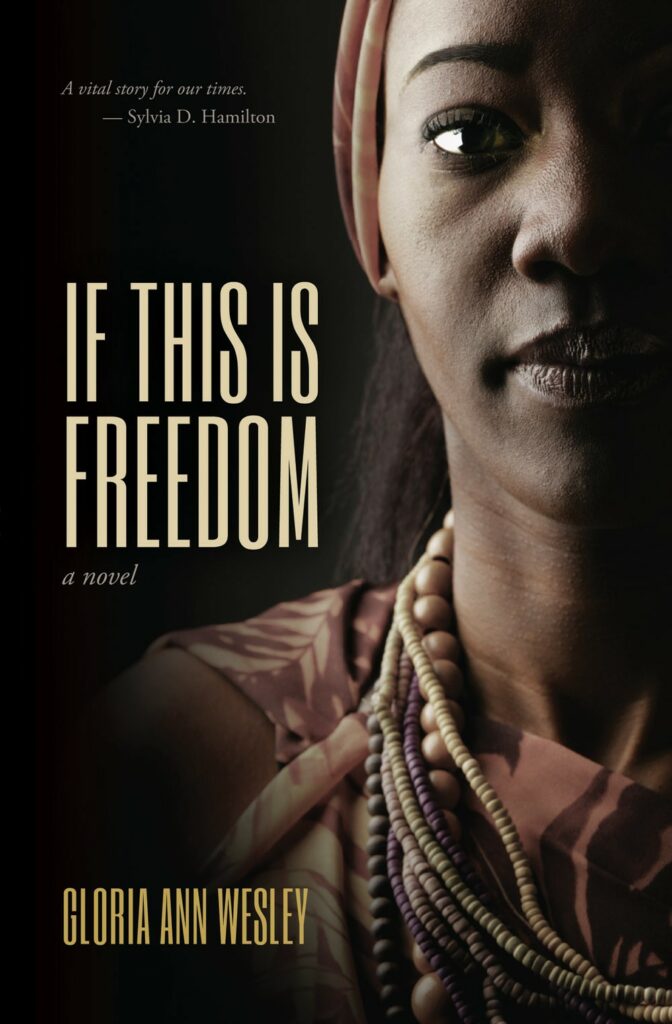
Gloria Ann Wesley (2013)
Author
If This Is Freedom by Gloria Ann Wesley (2013) is a powerful historical novel that follows the story of Sarah Redmond, a young Black woman navigating life after the abolition of slavery in Canada. The narrative explores the struggles, resilience, and aspirations of freed Black communities in the 19th century, particularly in Nova Scotia.

Gloria Ann Wesley (2013)
Author
- Phone:+1 (859) 254-6589
- Email:info@example.com

Dionne Brand (1997)
Author
Dionne Brand’s Land to Light On is a powerful and evocative poetry collection that reflects themes of displacement, memory, identity, and the search for belonging. The collection explores the lived experience of immigrants and diasporic communities, weaving together personal and collective histories.

Dionne Brand (1997)
Author
- Phone:+1 (859) 254-6589
- Email:info@example.com
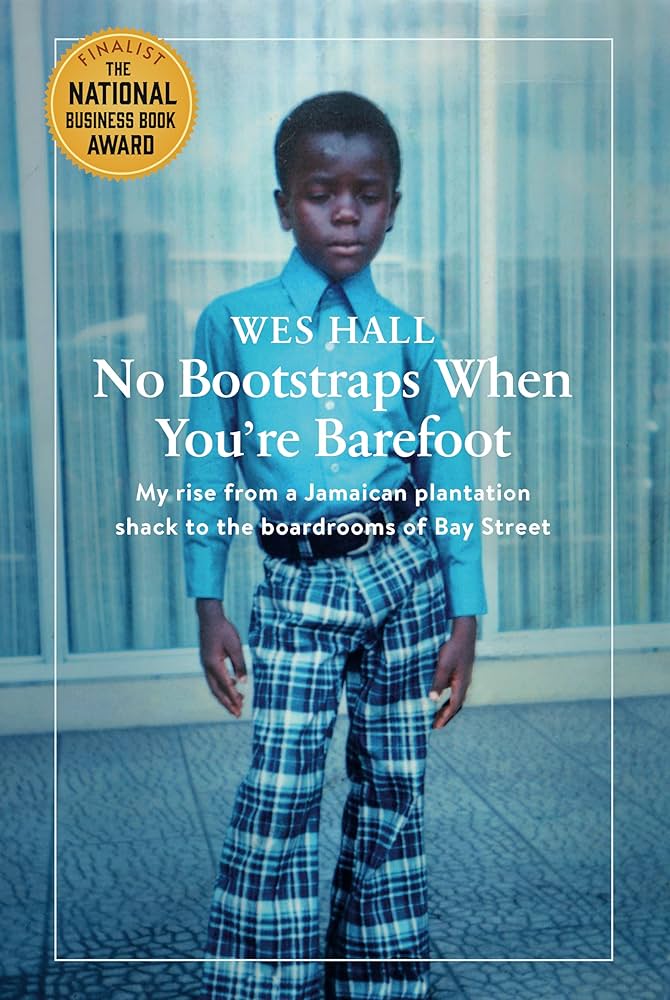
Wes Hall (2022)
Author
"No Bootstraps When You're Barefoot" is a memoir by Wes Hall, published in 2022. The book chronicles Hall's remarkable journey from a challenging childhood in rural Jamaica to becoming a prominent Canadian entrepreneur and philanthropist. Raised by his grandmother in a zinc-roofed shack, Hall faced significant hardships, including periods of living with his verbally abusive and violent mother. At thirteen, he was expelled from his mother's home and had to fend for himself. At sixteen, he relocated to Canada to live with his father, whom he barely knew. By eighteen, Hall was once again on his own.

Wes Hall (2022)
Author
- Phone:+1 (859) 254-6589
- Email:info@example.com

Bridglal Pachai (2007)
Author
Bridglal Pachai's Nova Scotia Black Experience Through the Centuries offers an in-depth exploration of the historical journey of Black communities in Nova Scotia, highlighting their struggles, resilience, and contributions to the province over time. The book provides a detailed account of the arrival of Black Loyalists, Maroons, and Refugees, tracing their settlement and the challenges they faced, such as systemic racism, discrimination, and socio-economic barriers.

Bridglal Pachai (2007)
Author
- Phone:+1 (859) 254-6589
- Email:info@example.com
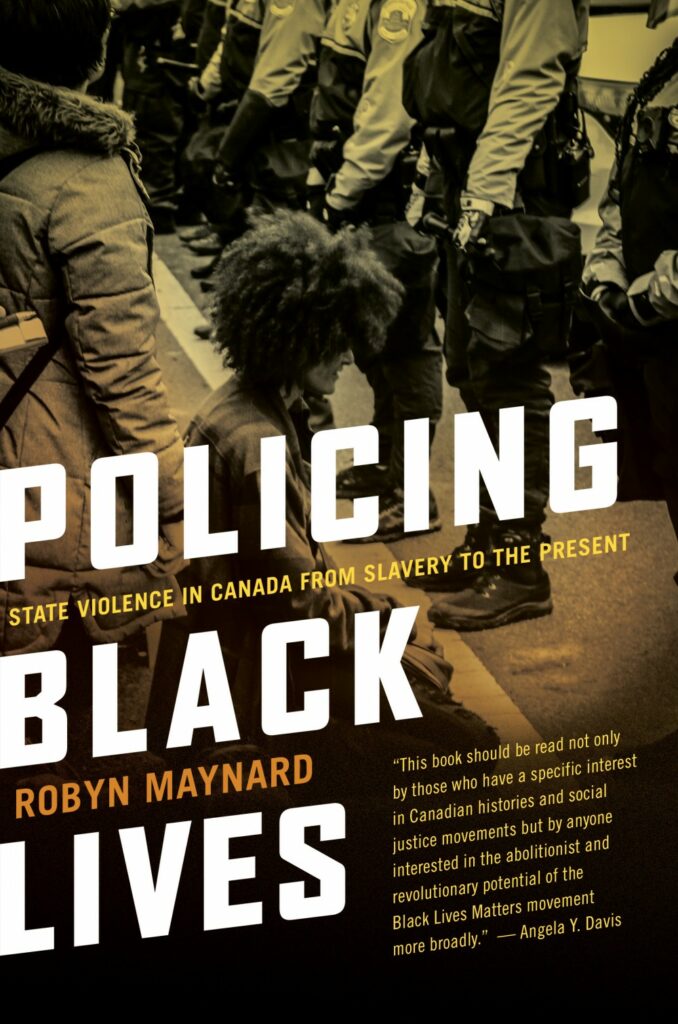
Policing Black Lives Robyn Maynard (2017)
Author
In Policing Black Lives, Robyn Maynard presents a powerful and meticulously researched examination of anti-Black racism in Canada, tracing its historical and contemporary impacts across institutions. The book challenges the myth of Canada as a haven of racial equality by exposing systemic injustices in policing, education, immigration, healthcare, child welfare, and incarceration.

Policing Black Lives Robyn Maynard (2017)
Author
- Phone:+1 (859) 254-6589
- Email:info@example.com
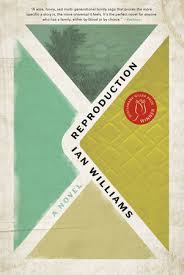
Reproduction by Ian Williams (2019)
Author
Ian Williams' Reproduction is an inventive and unconventional novel that explores the complex nature of family, identity, and human connections. The narrative begins with the chance meeting of Felicia, a teenage immigrant from an unnamed Caribbean country, and Edgar, the son of a wealthy German family. Their brief romantic encounter sets off a chain of events that reverberates through generations. The novel is divided into four sections, each with a distinct structure and style, reflecting the evolving relationships between its characters. Williams employs humor, wordplay, and a fragmented narrative to explore how people from vastly different backgrounds come together to form unorthodox family units. The story is as much about the randomness of human connections as it is about how they shape and transform lives over time.

Reproduction by Ian Williams (2019)
Author
- Phone:+1 (859) 254-6589
- Email:info@example.com
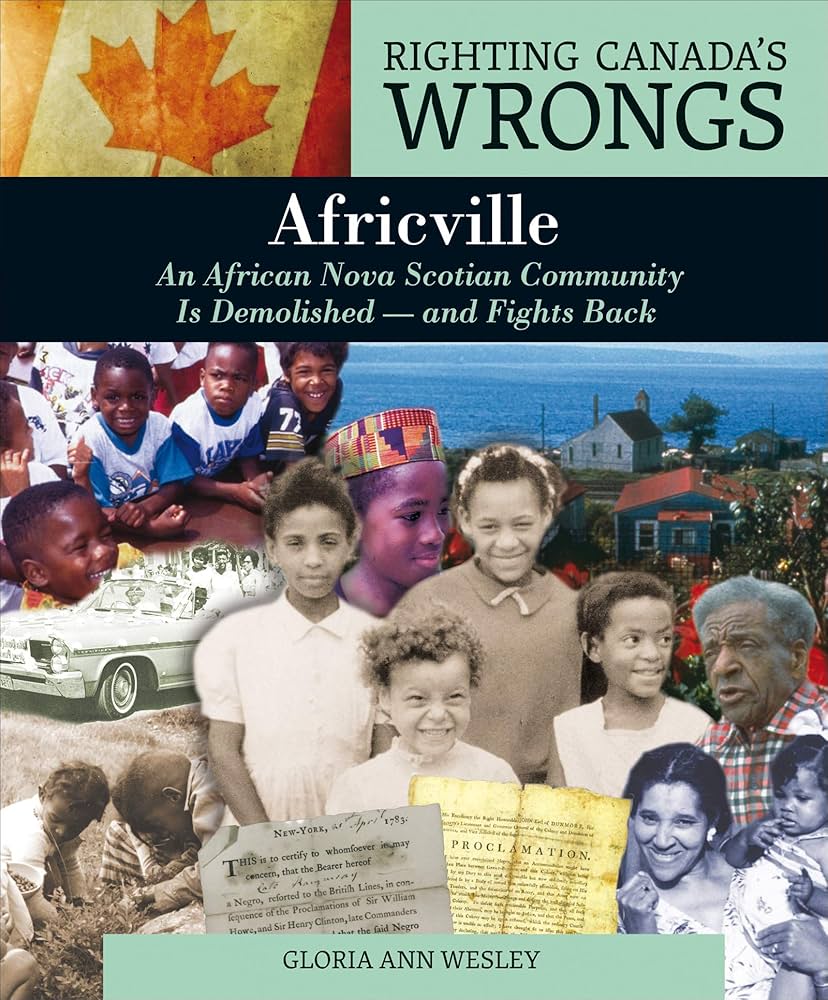
Gloria Ann Wesley (2019)
Author
This is a poignant and educational exploration of the history and legacy of Africville, a Black community in Halifax, Nova Scotia, that was destroyed in the 1960s under the guise of urban renewal. Through a mix of historical narrative, personal stories, and archival materials, Wesley provides a vivid account of the community’s origins, resilience, and eventual displacement. Africville was founded in the 19th century by Black settlers, many of whom were descendants of enslaved people or loyalists who sought refuge in Nova Scotia. Despite systemic neglect by the city of Halifax—such as the lack of essential services like clean water and proper infrastructure—the residents built a vibrant, self-reliant community defined by strong cultural traditions and a deep sense of belonging.

Gloria Ann Wesley (2019)
Author
- Phone:+1 (859) 254-6589
- Email:info@example.com

Maxine Tynes (1991)
Author
This is a poignant collection of poetry that delves into themes of identity, heritage, resilience, and social justice. As an acclaimed African Nova Scotian poet, Tynes uses her work to explore the intersections of race, culture, and community, often drawing on personal and collective histories to reflect on broader societal issues. The poems in this collection are characterized by their emotional depth and lyrical beauty, offering both a celebration of life and a call for change. Tynes confronts topics such as systemic racism, environmental degradation, and the struggles of marginalized communities, yet her tone remains hopeful and imbued with a desire for unity and understanding. Through vivid imagery and powerful language, she challenges readers to see the world through her lens and to consider their roles in shaping a more equitable and sustainable future.

Maxine Tynes (1991)
Author
- Phone:+1 (859) 254-6589
- Email:info@example.com
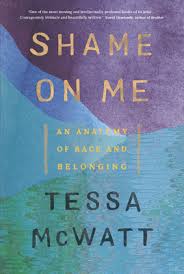
Tessa McWatt (2019)
Author
This is a deeply personal and thought-provoking memoir that examines identity, race, and belonging through the lens of the author’s mixed-race heritage. McWatt, born in Guyana and raised in Canada, reflects on her complex ancestry, which spans continents, histories, and cultures, including African, Indian, Chinese, Portuguese, and Scottish roots. Using a unique structure, the book is divided into chapters named after parts of the body, such as "Hair," "Nose," and "Skin," with each section exploring how these physical traits have been racialized and politicized throughout history. McWatt interrogates the ways in which her own body has been read and misread by others, revealing how societal perceptions of race and identity shape personal experience. Blending memoir with cultural criticism, McWatt delves into colonial histories, systemic racism, and the enduring legacies of oppression while weaving in her own intimate experiences of prejudice and alienation. At the same time, she searches for belonging in a world that often insists on categorization and exclusion.

Tessa McWatt (2019)
Author
- Phone:+1 (859) 254-6589
- Email:info@example.com
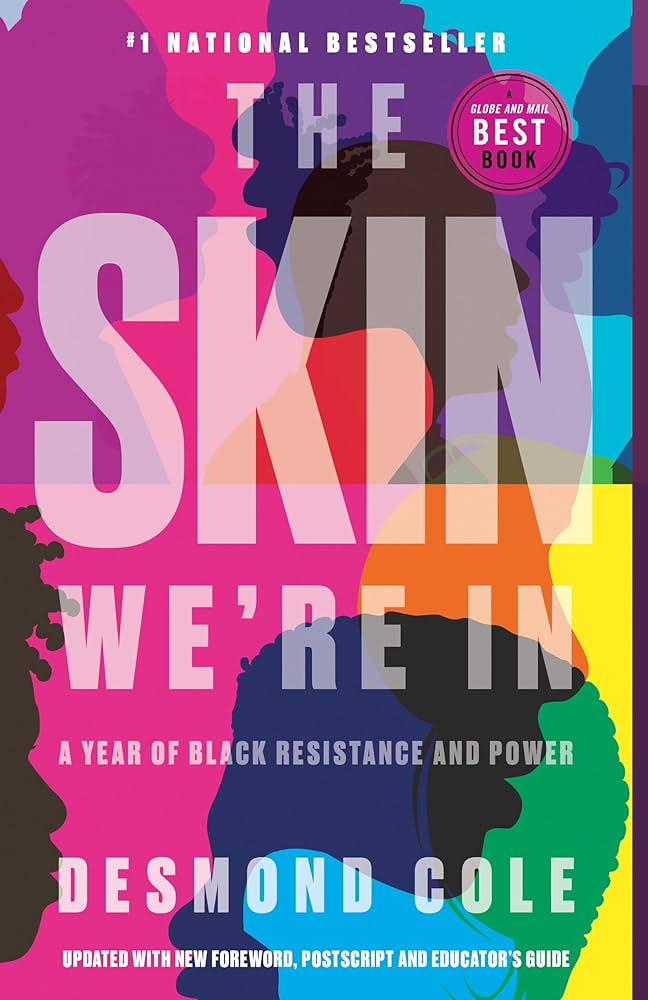
Desmond Cole (2020)
Author
This is a powerful and deeply personal exploration of systemic racism in Canada. The book chronicles a year in the author’s life, offering a month-by-month account of the pervasive racial injustices faced by Black Canadians, from police brutality and surveillance to discriminatory policies and societal attitudes. Drawing from his experiences as a journalist, activist, and advocate, Cole examines how institutions like law enforcement, schools, and the government perpetuate inequality and violence against Black and Indigenous communities. He critiques the myth of Canada as a beacon of multicultural harmony, exposing the harsh realities of anti-Black racism often overlooked in mainstream narratives.

Desmond Cole (2020)
Author
- Phone:+1 (859) 254-6589
- Email:info@example.com

Suzette Mayr (2022)
Author
This is an evocative and richly detailed novel that examines themes of race, identity, and survival through the lens of a largely forgotten chapter in history. Set in 1929, the story follows Baxter, a Black queer man working as a sleeping car porter on a Canadian passenger train. His job, while offering some independence, is grueling and defined by relentless demands from passengers, dehumanizing treatment, and the constant need to suppress his true self. Baxter dreams of saving enough money to attend dental school, but his work is marred by physical exhaustion and emotional strain. The novel vividly captures his daily struggles as he caters to the whims of wealthy white passengers, contending with racism and the precarious balance of maintaining a composed façade while concealing his personal desires and frustrations. Baxter’s world becomes increasingly surreal and fragmented when a strange discovery—a passenger’s forgotten postcard depicting a macabre scene—begins to haunt him, blurring the line between reality and imagination.

Suzette Mayr (2022)
Author
- Phone:+1 (859) 254-6589
- Email:info@example.com
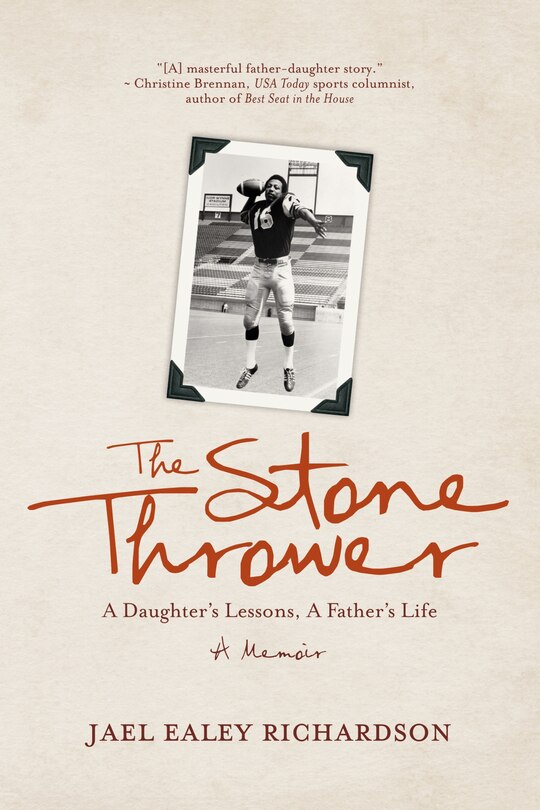
Jael Richardson (2016)
Author
This is a compelling memoir that intertwines the story of the author’s father, Chuck Ealey, a groundbreaking Black quarterback, with her personal journey of self-discovery. Chuck Ealey’s life serves as a central narrative thread as Richardson explores themes of race, identity, perseverance, and the sacrifices required to break barriers. The book recounts Ealey’s upbringing in segregated Portsmouth, Ohio, where he honed his skills on the football field and developed the determination to overcome systemic racism. Despite his talent and undefeated college career, Ealey was denied opportunities to play in the NFL due to racial prejudice and instead forged a successful career in the Canadian Football League (CFL). His journey is a testament to resilience and the power of pursuing one’s dreams against all odds.

Jael Richardson (2016)
Author
- Phone:+1 (859) 254-6589
- Email:info@example.com

Eternity Martis (2020)
Author
This is a powerful memoir that examines the intersection of race, identity, and systemic racism through the lens of the author’s undergraduate years at a predominantly white university in Canada. The book chronicles Martis’s experiences as a young Black woman navigating the challenges of student life while confronting the alienation, microaggressions, and overt racism that permeate her environment. Through a candid and unflinching narrative, Martis explores themes such as the tokenization of racialized students, the lack of institutional support, and the emotional toll of constantly battling prejudice. She also reflects on her personal journey, including strained family dynamics, romantic relationships, and the quest for self-discovery amidst these challenges.

Eternity Martis (2020)
Author
- Phone:+1 (859) 254-6589
- Email:info@example.com

©2025. 902 Man Up. All Rights Reserved.

